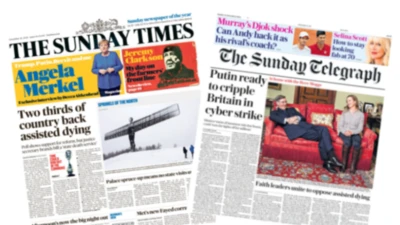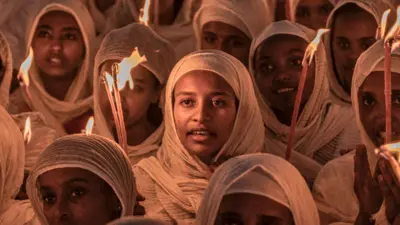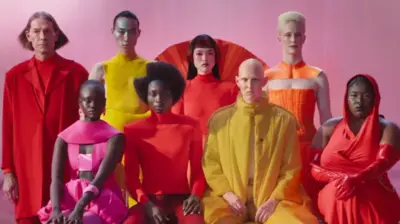We've updated our Privacy and Cookies Policy
We've made some important changes to our Privacy and Cookies Policy and we want you to know what this means for you and your data.
Russia election: Police release anti-Putin protesters
Russian police have released about 250 opposition activists who were detained in Moscow after a rally against Vladimir Putin's election victory.
Protest leader Alexei Navalny said the rallies would go on "until we win".
Opposition election monitors have reported large-scale fraud in favour of Mr Putin, who was elected president for a third term on Sunday.
Especially in St Petersburg there appears to be evidence of severe fraud - more than in Moscow.
The ґуПуґ«ГЅ's Daniel Sandford in Moscow reports that fresh evidence of election cheating is emerging all the time.
Nikolai Belyaev, from the website Svobodny Protokol [consolidated list of results], said "so far we've seen a huge number of violations in St Petersburg".
"In some individual polling stations we've seen candidates getting half the number votes on the final election commission website than were recorded on the original lists of results".
International observers also said the election was seriously flawed, criticising a lack of real competition.
Mr Navalny and fellow protest leader Sergei Udaltsov face fines of up to 2,000 roubles (ВЈ43; $68) for alleged public order offences.
In a tweet on Tuesday the US Ambassador to Moscow, Michael McFaul, said it was "troubling to watch arrests of peaceful demonstrators" and "freedom of assembly and freedom of speech are universal values".
In St Petersburg about 300 opposition activists were arrested. It is not yet clear how many of them have been released.
A crowd of up to 20,000 people rallied in Moscow's Pushkin Square on Monday night and were addressed by Mr Navalny and Mr Udaltsov. The authorities had allowed the rally to go ahead.
Mr Navalny said "swindlers and thieves" ruled Russia and only they, the protesters, could stop them.
Although many protesters left peacefully, riot police moved in later and arrested about 250. Police said those detained had tried to hold an indefinite rally.
Two rallies cancelled
Both Mr Navalny - a prominent anti-corruption blogger - and Mr Udaltsov have been arrested previously for their opposition activities.
"Tens of thousands of people will go into city streets and refuse to leave. We'll carry on with this until we win," Mr Navalny told his supporters on Tuesday.
However, the opposition has called off rallies that it was planning to hold in Moscow on 8 and 9 March.
Mr Udaltsov said the authorities would not let the opposition rallies take place on Arbat Square and the alternatives did not suit the activists.
A runner-up in the election, billionaire tycoon Mikhail Prokhorov, condemned Monday's police action, in a post on his Facebook page.
"This was a peaceful rally. I am outraged by the use of force against people who turned up to express their point of view."
He also called on Russians "not to submit to provocations".
Foreign states have accepted that Mr Putin won on Sunday but observers said the poll had been skewed in his favour.
Amid the claims of widespread fraud in the election, theurged Russia to carry out a thorough investigation.
Dialogue with Putin
Official results showed Mr Putin won just under 64% of the vote. He served two terms previously as president, in 2000-2008, then served four years as prime minister. His new presidential term will last six years.
The ґуПуґ«ГЅ's diplomatic correspondent Bridget Kendall, covering the election in Moscow, says the heavy policing could be a sign of more trouble to come. Mr Putin has warned repeatedly about foreign support for some activists.
She says the doubts about the true scale of support for Mr Putin could erode his authority. There were mass protests after the December parliamentary elections, where widespread abuses in favour of Mr Putin's United Russia party were reported.
There are some signs of Mr Putin reaching out to political rivals, our correspondent says.
He was swift to invite all the defeated presidential candidates in for a chat, and only the veteran communist leader Gennady Zyuganov refused.
Mr Putin told Mikhail Prokhorov, who polled better than expected among Russia's urban middle class, that he thought they could have a fruitful dialogue about Mr Prokhorov's plan to set up a new political party.
Top Stories
More to explore
Most read
Content is not available








